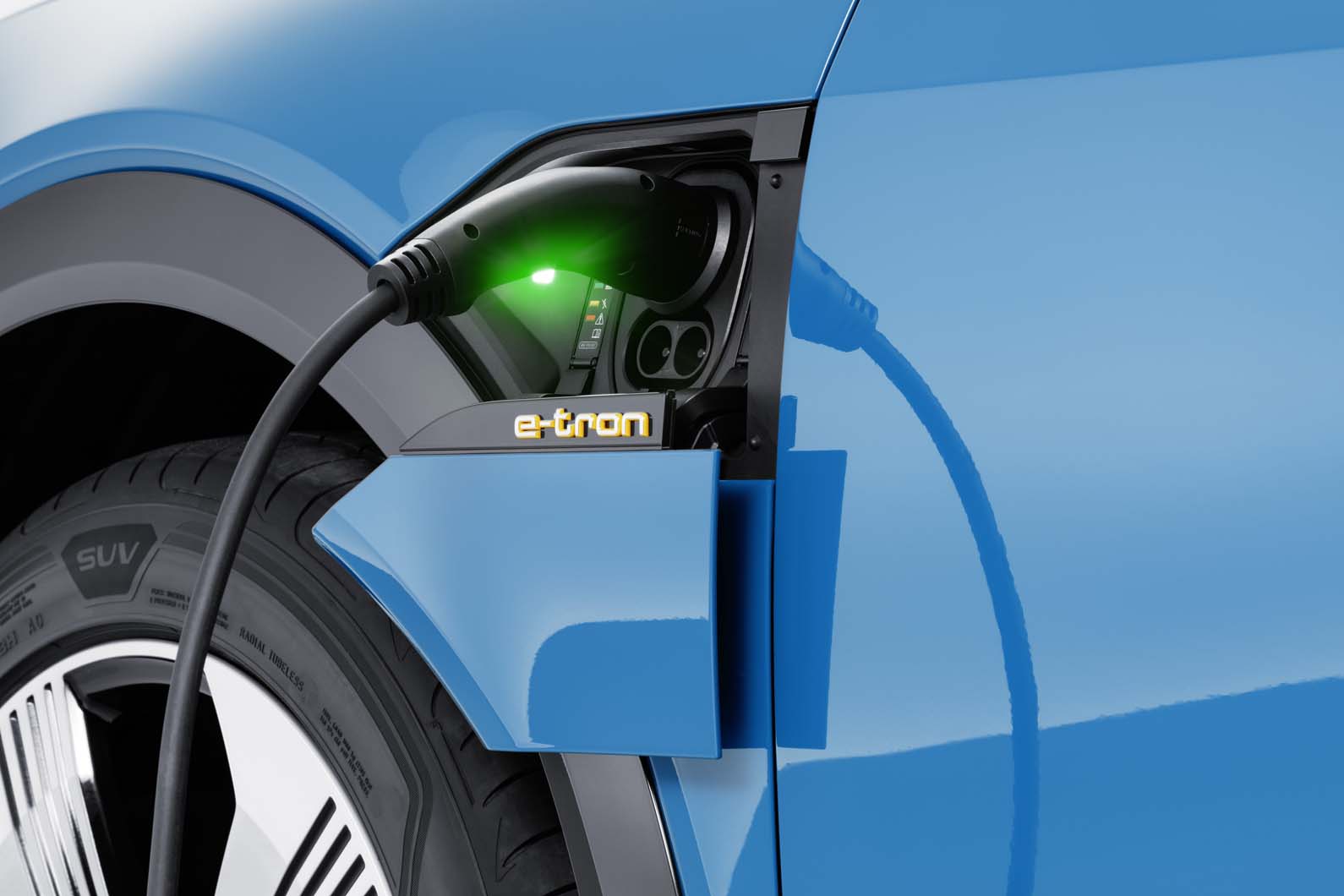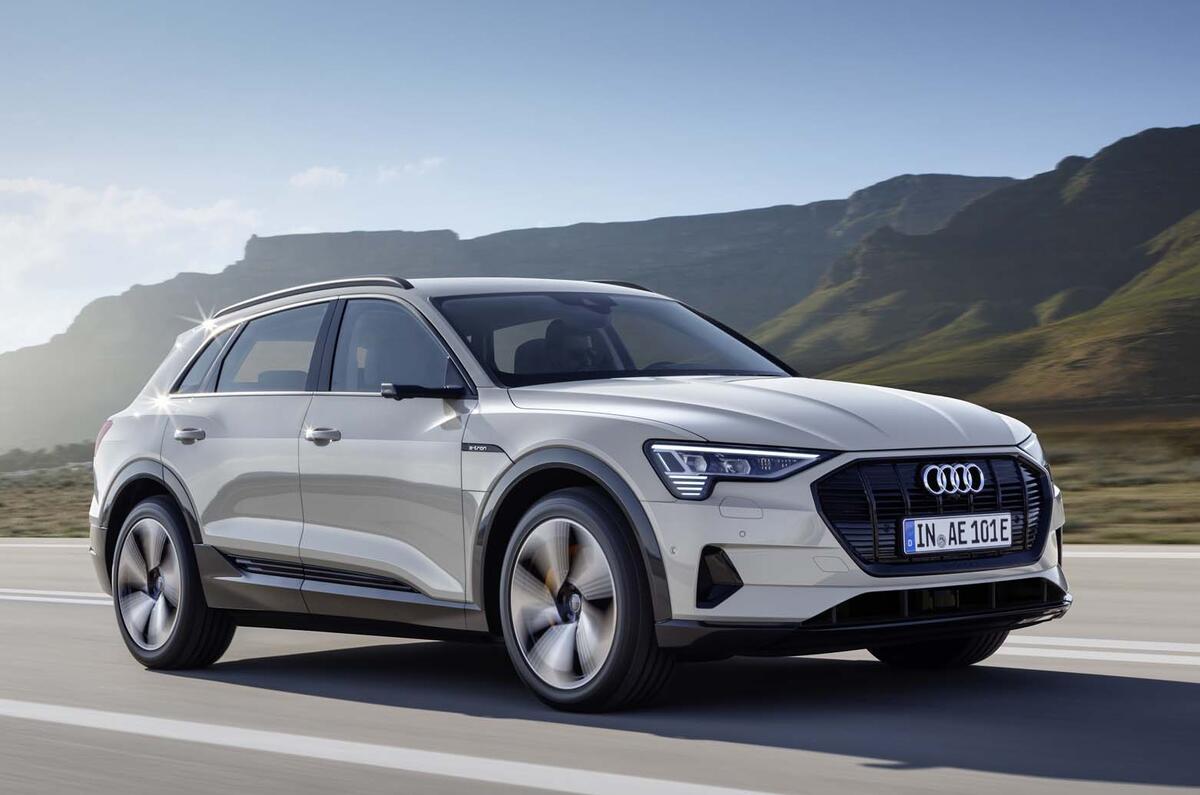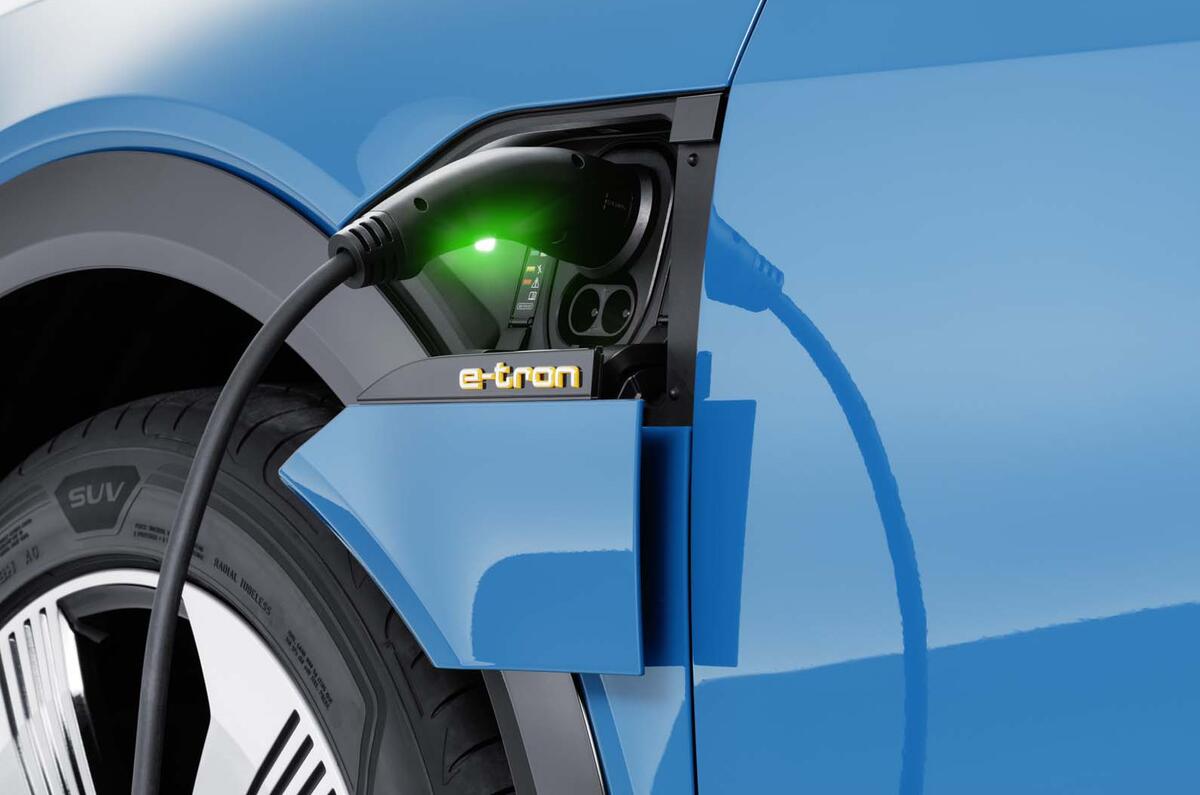Electric Audi models will be capable of fast charging to 80% in less than 12 minutes from 2020, the company has claimed.
Audi has just revealed its first electric-only model, the E-tron SUV, which is capable of charging to 80% in 30 minutes using the 150kW fast chargers currently being rolled out across Europe.
However, these 150kW chargers, part of the Ionity network that's joint-owned by Audi, BMW, Ford, Mercedes and others, are already capable of 350kW charging and are ready to be upgraded when battery technology develops enough to be capable of using them.
Audi’s third electric model, the E-tron GT, will be its first to have batteries capable of charging at 350kW when it arrives in 2020, senior E-tron product marketing manager Johannes Eckstein confirmed.

Currently, battery technology is not advanced enough to accommodate the electricity flow rate of 350kW charging, but next-generation batteries such as that expected for the E-tron GT will allow for this.
Range anxiety is a major barrier to electric vehicle uptake, so being able to charge an electric model in around 10 minutes will have a dramatic impact in perception and usability. The average time to refuel and pay for petrol and diesel is seven minutes.
This news tallies with sibling brand Porsche’s claim that its Taycan electric car, which is due to arrive in 2020, will be capable of “adding 400km in roughly 15 minutes” through 350kW charging points.
Read more
Audi A3 Sportback e-tron review
Audi E-tron launches as brand's first electric-only model
Autocar confidential: Electric car makers, Audi E-tron to get a royal reception and more







Join the debate
Add your comment
Range anxiety is entirely
Range anxiety is entirely pyschological - I ve never had it once when I driven an EV and I ve driven 100+
She cannae take any more, cap'n!
Anyone with some knowledge of electricity will know this ain't gonna work, and if it does the amount of power that is going to be lost as heat will be "epic" unless the chargers are connected to a very high source voltage which is going to mean a lot of "uplift" or/and ducts directly into the local substation or, not saying it ain't possible just saying it's gonna be expensive.
p.s I am sure people here are not slow, however I must make the point that is 350,000w is a third of a million watts.
There is also the fact that "power blasting" batteries is not a good idea unless the manufacturere is going to replace them for a very low price.
For countried that have 3 phase generally available may fair a little better.
A lot of headlines to make joe public "buy" then the reality.
"Real" and "apparent power" will almost certainly be added.
Just saying so people don't get "dieselled"
405line wrote:
Its not the power that kills batteries, its charging to 100%, hence why with lots of electric cars a full charge is actually 80%, despite showing "100%".
mmm
Do you know about C/xxx ratings?
Classic.
Love this line. I suppose if they do manage it the people who did have knowledge of electricity don't now.
Anyway perhaps you can explain your knowledge to IONITY who have rolled out chargers in America and Europe since April that are capable of up to 350Kwh.
Here's their latest press release "The 350 kW charging parks are located at the Aire de Porte d’Angers South and Aire de Tours la Longue Vue "
Power struggle
What I noticed is exactly as I envisaged it, a brand new installation in the "middle of nowhere" and at an industrial premises..."brave new world". I'm talking charging in a UK urban enviroment not a rural enviroment that is actually OK to use ICE. In america they are based on 110-120 volts so that's gonna cause some infrastructural issues and I will be intersted to know how they will deliver power over long distances in the US.
Charging cables
I'm convinced electric cars are a very big part of the future, and do think people are far too hung up on rapid charging, which for most would be used a few times a year as generally every day your car will start with a full 'tank' so most of us will be visiting fuel stations/chargers far less often than we do now.
One (minor) question I do have about rapid charging is how big will the cables be? I used to install LV equipment in large factories, my maths is rusty but 350kW equates to 1600A, for which we used to install cables of 500 sq mm cross sectional area, which weighed several kg per metre.
Size
Looking at the 350Kwh chargers that Electrify America use the cables look no differrent from the 50Kwh charger cable, they're at 'filler' level and suspended from above so I don't think it'll be to much of a problem. But like you say most people will rarely use these, afterall who'd buy petrol at £36 a gallon when you can get it elsewhere for £6.
The same logic applies to electricity. When you can get economy 7 for £0.08 or £0.13 (normal rate) a Kilowatt who'd pay a charging station £0.45p, unless in a emegency or course
xxxx wrote:
The problem with Economy 7 is that the daytime rate is a total rip-off.
So is caviar
If you've got gas heating (like most people) and cooking then you won't be using daytime electricty much compared to the charge you put in your EV overnight. Just look at EV forums regarding switching once you have an EV (I mentioned this to you before).